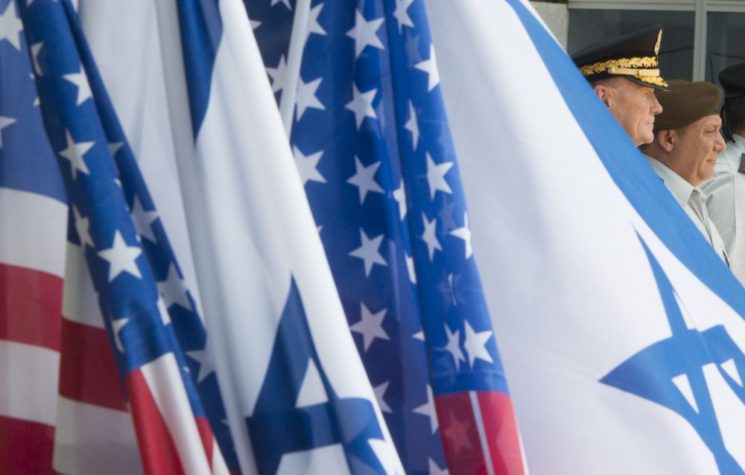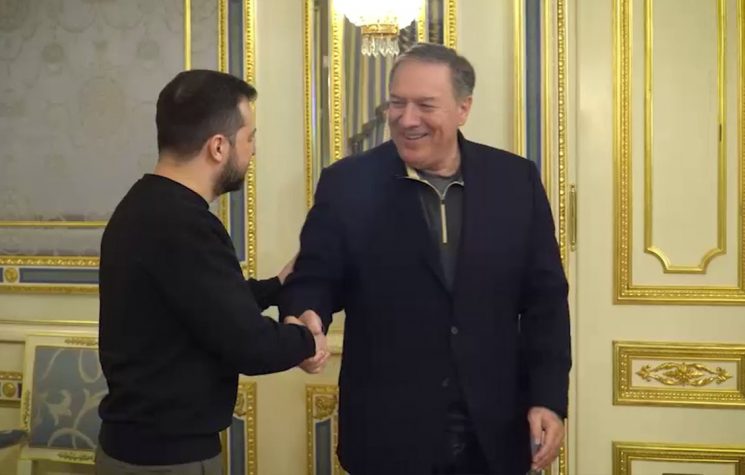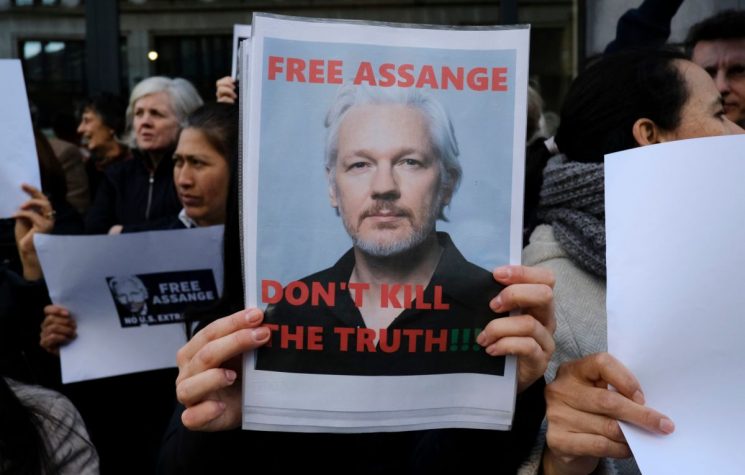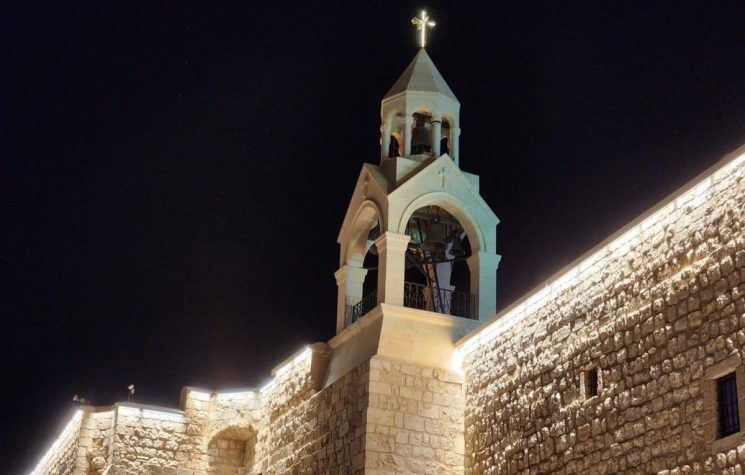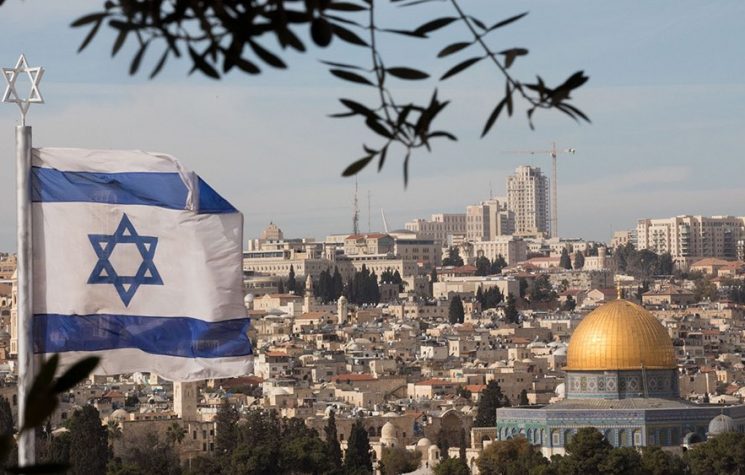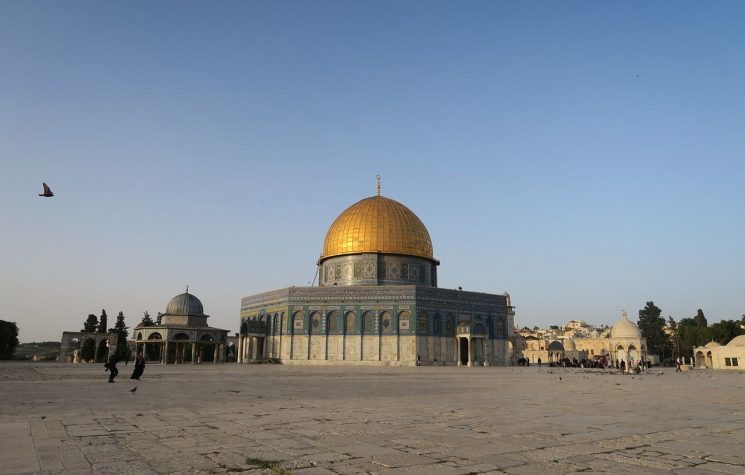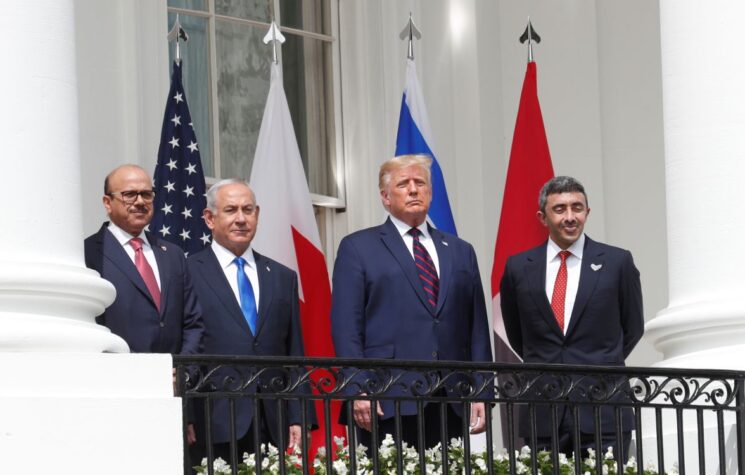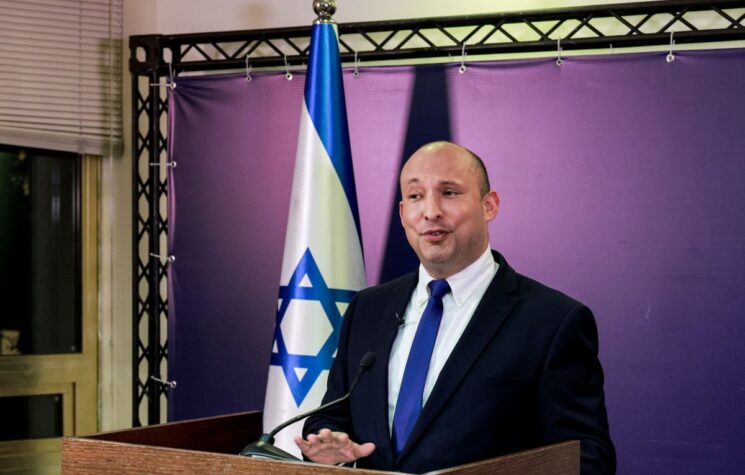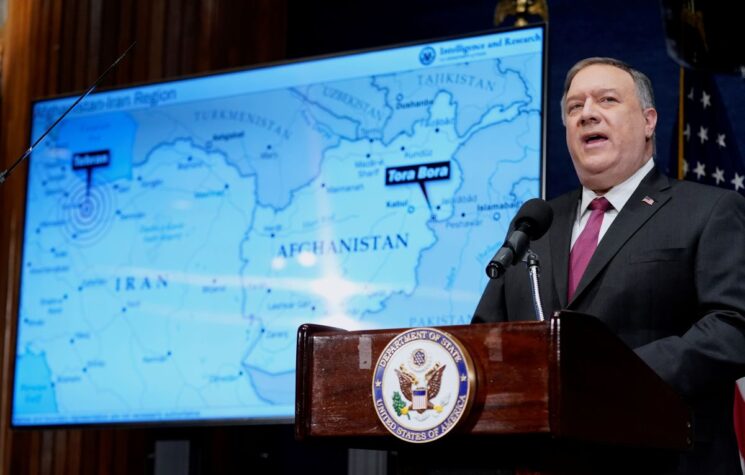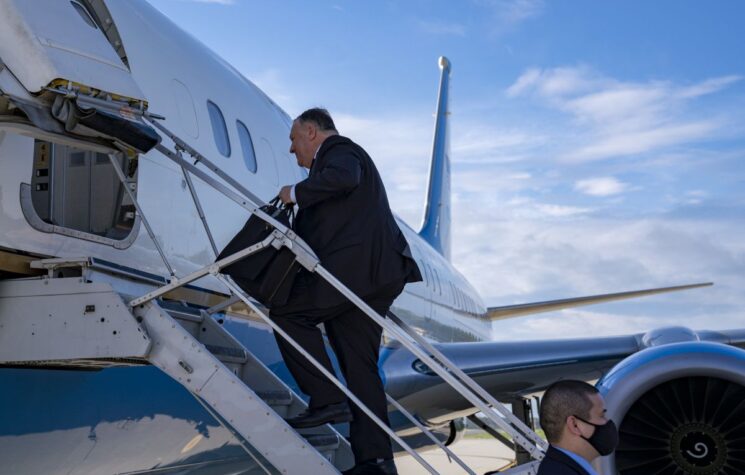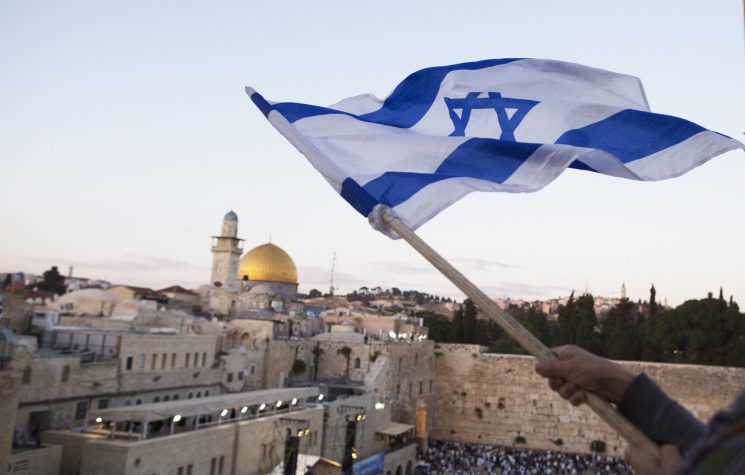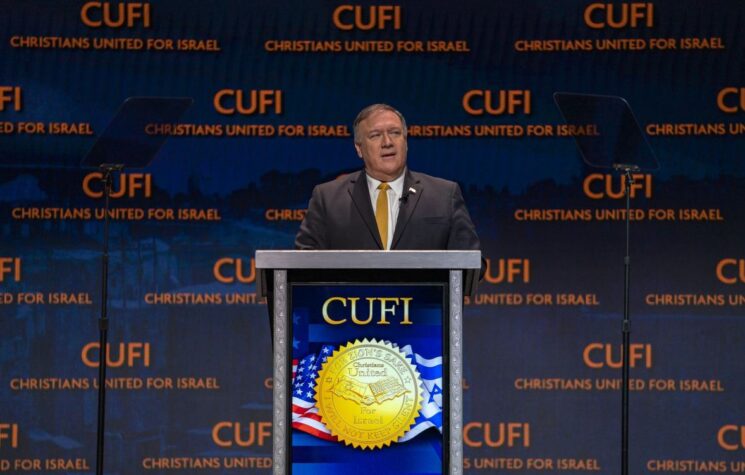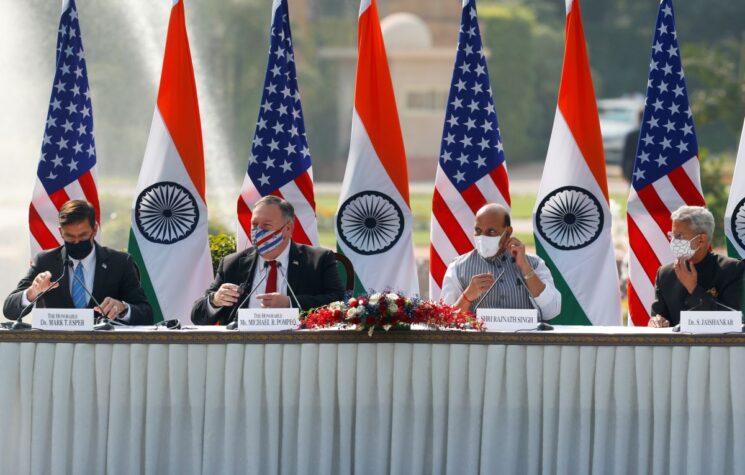There has been considerable controversy regarding Secretary of State Mike Pompeo’s Republican National Convention address pre-recorded at the King David Hotel in Jerusalem and aired last Tuesday night. As usual however, the discussion, if one might dignify it using such a term, has been partisan in nature and focused on issues that one might consider to be of secondary importance. The perceived problems for Democrats and their media allies have been first of all the inappropriateness of a Secretary of State getting involved at all in an electoral campaign and also the possible illegality of overseas Embassy money and resources being used in support of a political speech. Misuse of government property is, perhaps not coincidentally, a charge also being leveled against President Donald Trump for his use of the White House as a prop in his final address to the convention.
To be sure, the money issue can be fixed by the Republican National Committee reimbursing the federal government proportionate to the expenses incurred by Pompeo on his trip for the actual costs associated with the speech. The other issue, which effectively comes down to enforcement of the Hatch Act prohibiting government employees from engaging in political activity, is admittedly more difficult, and it also runs contrary to the tradition that the Secretary of State represents the entire country and should avoid participating in explicitly partisan events. Congress’s Oversight committee is currently looking into the options for responding to the Pompeo speech, though it is already clear that it will turn out to be the usual partisan political finger pointing exercise.
Pompeo started out by stating how Donald Trump’s policies had made every American, including his own family, safer. He then went on to provide the evidence, how among “bold initiatives” all over the world in foreign policy “The president has held China accountable for covering up the China virus and allowing it to spread death and economic destruction in America and around the world and he will not rest until justice is done.” Pompeo then went on to give Trump top marks for brokering the historic “peace deal” between Israel and the United Arab Emirates. He enthused that “This is a deal that our grandchildren will read about in their history books.”
Pompeo also praised other foreign policy “successes” to include the assassination of Iranian General and “terrorist” Qassim Soleimani and the “defeat” of ISIS, both of which are, to put it mildly, greatly exaggerated. But he saved his best news for last, praising how President Trump had moved the U.S. Embassy to “this city of God” the “rightful capital of the Jewish homeland, Jerusalem.” It was inter alia an in-your-face show of support for Israel, which was the one foreign country praised by multiple speakers on every night of the Republican convention.
If the underlying issue is that Pompeo was clearly in a political mode when praising Donald Trump and his policies, then it should be observed that the Jerusalem address differs little from what Pompeo has said on a score of occasions in Washington and elsewhere. That he made the comments to a narrow audience drawn from one political party is disturbing, but it could still be framed as a discussion of foreign policy before a gathering of Americans. And as for possible consequences, Pompeo and Trump would certainly ignore any actions initiated by inspectors general in the State Department and executive branch who might try to sanction the Secretary based on “political” comments that are sandwiched into what will be described as a foreign policy briefing. Pompeo has in fact already fired one State Department inspector general who was reportedly investigating the Secretary’s spending on gatherings that were political in nature. The House of Representatives Foreign Affairs Committee Chair Eliot Engel also is working on a motion to hold Pompeo in contempt for his refusal to respond to subpoenas over his “transparently political misuse of Department resources.”
An additional complaint about the speech has been the fundamentalist Christian content, which, though not in any way illegal, was regarded by many as unseemly. But that, it might seem, is part of the more significant issues raised by the content and venue for the address. Pompeo’s trip to Jerusalem was timed to coincide with the Republican conference. It was not just coincidence that he was in Israel and was able to photo-op his shaking of the hand of Prime Minister Benjamin Netanyahu, guarantee the Jewish state’s security and appear on the big screen at the convention with Jerusalem behind him. It was, in short, once again playing the Israel card to raise the enthusiasm level of the GOP’s most loyal constituency, the Christian Zionists. And to ensure that the message was received, it was delivered by the Trump administration’s leading Christian Zionist, Mike Pompeo.
But the ultimate irony is that the presentation by Pompeo was essentially a bit of theater, relying on a fraudulent rendition of America’s hypothetical foreign policy successes under Donald Trump. Trump’s campaign against China is very much a work-in-progress that could have a very serious downside, while simultaneously the relationship with the Kremlin, involving per Pompeo “deterring Russian aggression,” has become worse than it was when the Cold War ended. Meanwhile America’s European allies regard Trump and Pompeo as dangerous sociopaths.
And the “Deal of the Century” agreement between Israel and the UAE is already in tatters, with UAE representatives canceling a meeting after learning that the Jewish state has been pressuring Pompeo and the White House to block any sale of advanced F-35 fighter aircraft to the Arab state to “preserve Israel’s military advantage.” The agreement was a sham in any event, intended to give Trump a “victory” to help his electoral prospects at the expense of the hapless Palestinians, and no other Arab states, with the possible exception of basket case Sudan, appear willing to follow the UAE’s lead.
Since the so-called agreement, the Israeli air force has reverted to normal, pounding targets in both Lebanon and Syria, very little of which is being reported in the U.S. media. Nor have accounts of American provocations against Russian military personnel in Syria made the front pages, which, given the danger involved, is probably where they should be if the media were in any way responsible. Indeed, one has to go to the Grayzone to learn just to what extent both of America’s leading political parties are itching for more intervention in Syria to increase pressure on Russia, Iran and Hezbollah.
Unfortunately, the message coming from Pompeo in Jerusalem is not just an isolated political gambit. The United States of America has become the instigator and sustainer of a disproportionate share of global violence. With a hotly contested election coming up, there may be some hope that the brutal foreign policy prevailing since 9/11 will change, but, unfortunately, the reality is that in Washington some things will always remain the same.











